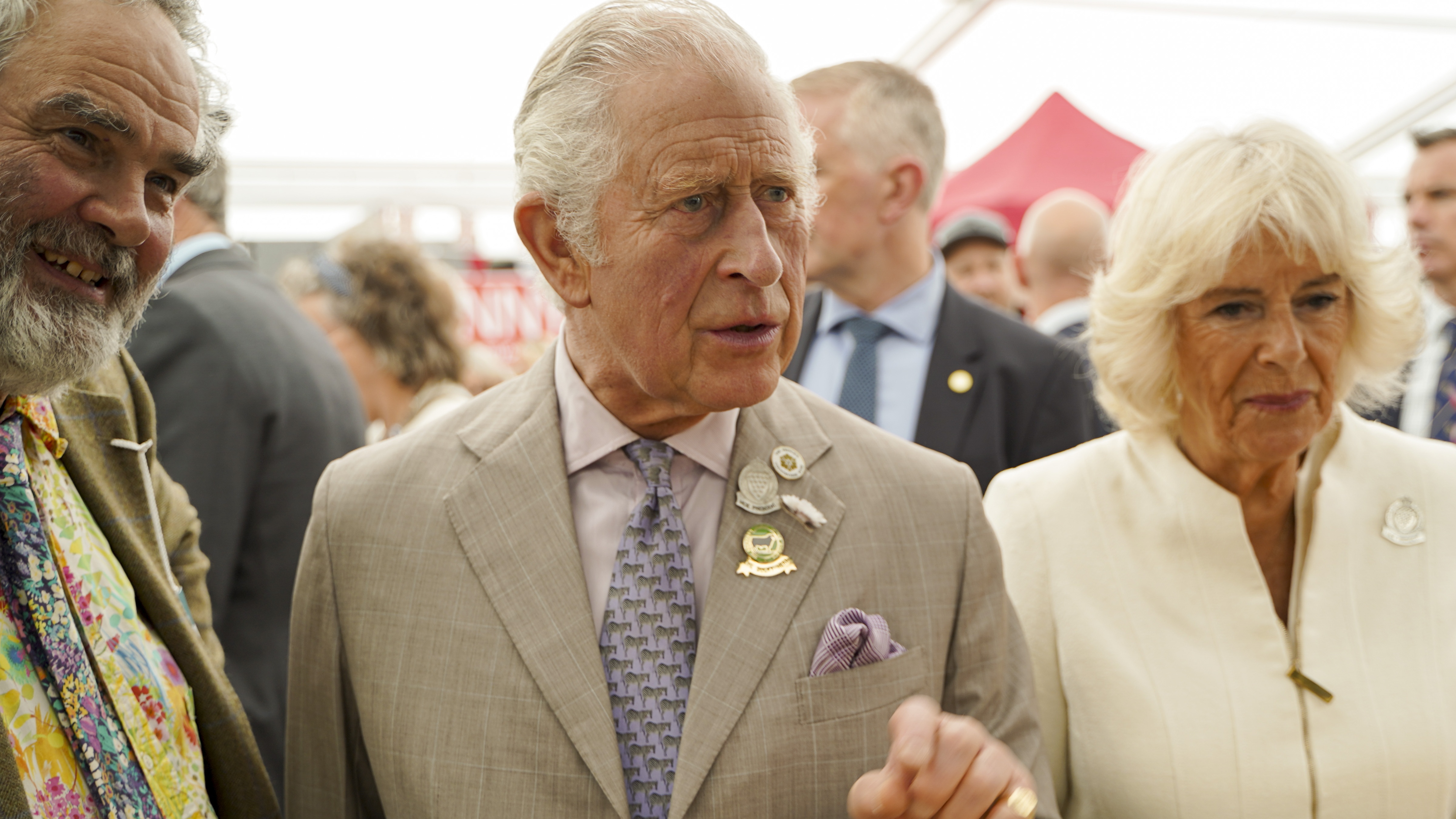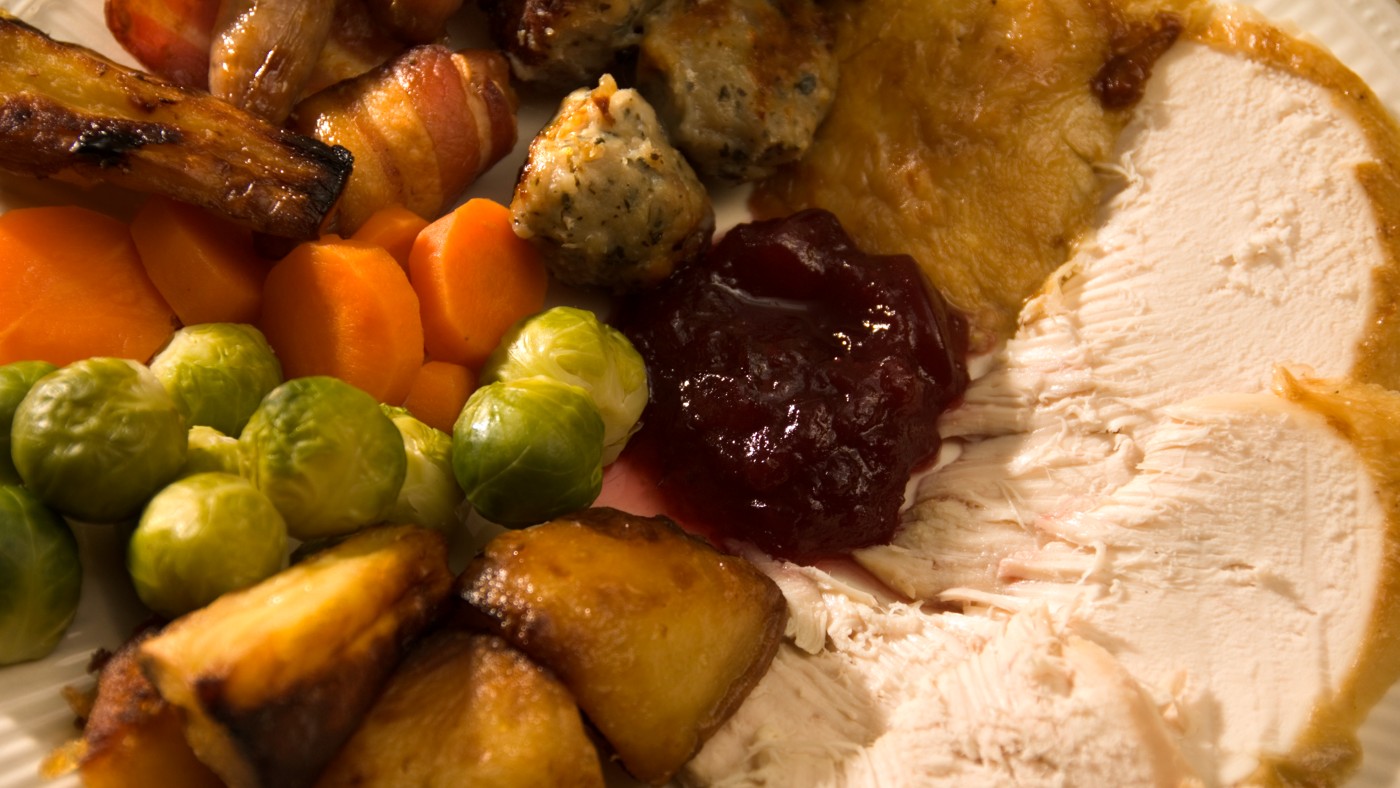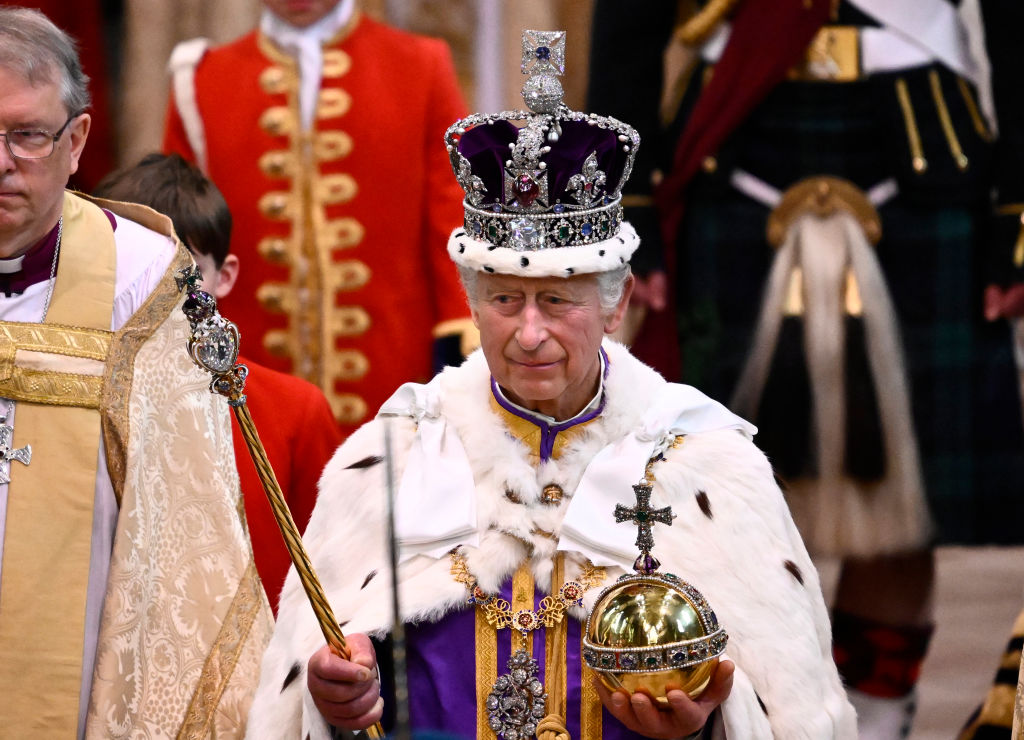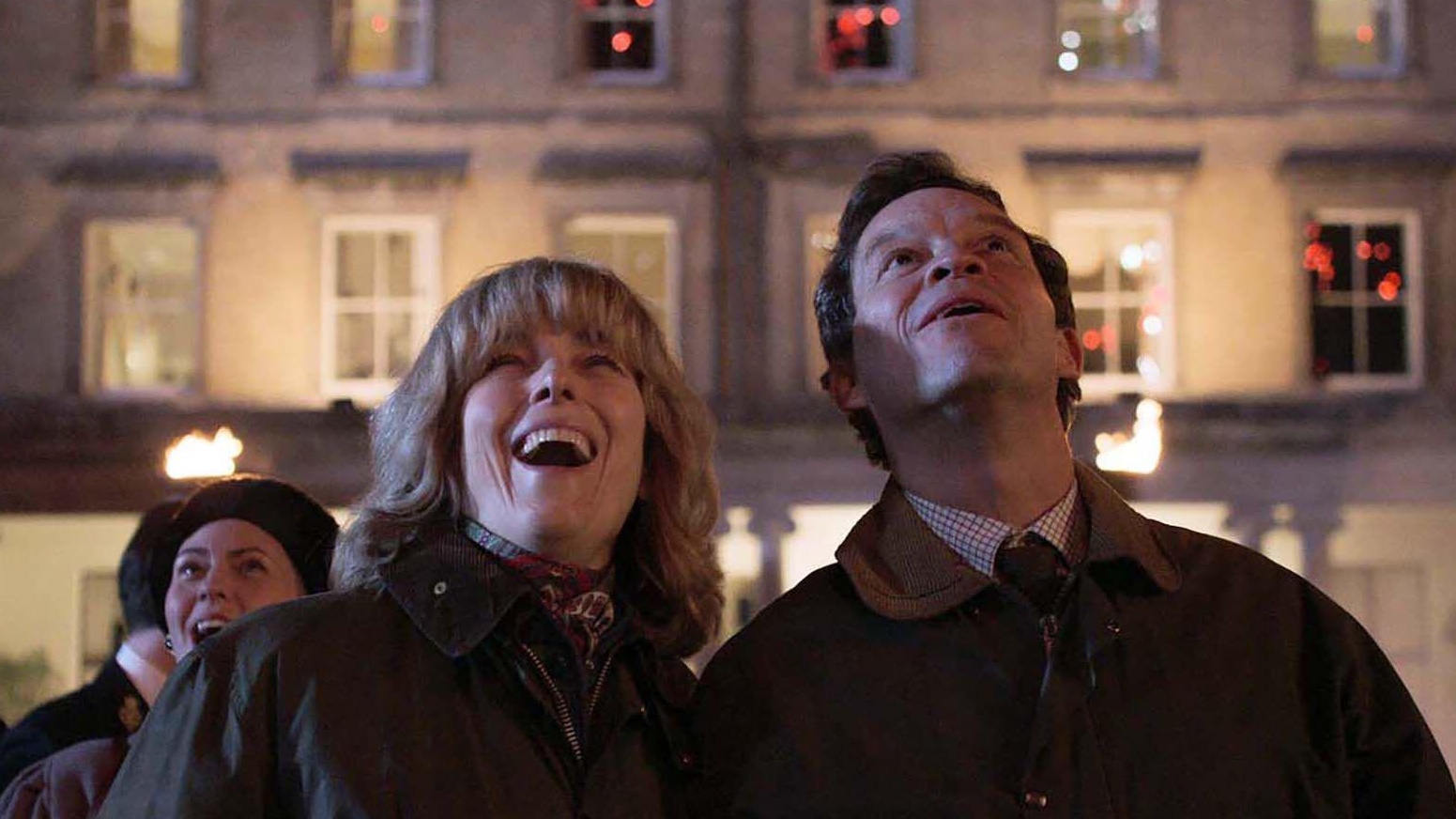‘Prince Charles should be wary of using his hereditary privilege as a pulpit’
Your digest of analysis from the British and international press

- 1. The Times view on royal interventions: princely politics
- 2. Millions of men support our abortion rights. We need to help them become stronger allies
- 3. Companies are treating the non-tech savvy like second-class citizens
- 4. Boris’s rewilding obsession could backfire
- 5. Is Prince Andrew the most deluded man in Britain?
A free daily email with the biggest news stories of the day – and the best features from TheWeek.com
You are now subscribed
Your newsletter sign-up was successful
1. The Times view on royal interventions: princely politics
The Times Editorial
on private opinions
Behind closed doors, Prince Charles is unimpressed with the government’s plans to send migrants to Rwanda, according to a source who spoke to The Times on Saturday. While there is “no doubting the passion on either side of the asylum issue” and the prince’s “trenchantly held opinions were, to be sure, vented privately rather than as part of a public address”, the “potential for word to get out is a factor that senior royals must always take into account”, said The Times. Clarence House has not denied the report. Prince Charles has given “tacit indications that as monarch he will know to avoid controversy” but neither has he “shied from it before”. Some of his causes have been humanitarian and others, “such as his lobbying for homoeopathy, have no merit”. But Prince Charles – and second in line to the throne, Prince William – “need to show care in not using their hereditary privilege as a pulpit”.
The Week
Escape your echo chamber. Get the facts behind the news, plus analysis from multiple perspectives.

Sign up for The Week's Free Newsletters
From our morning news briefing to a weekly Good News Newsletter, get the best of The Week delivered directly to your inbox.
From our morning news briefing to a weekly Good News Newsletter, get the best of The Week delivered directly to your inbox.
2. Millions of men support our abortion rights. We need to help them become stronger allies
Rhiannon Lucy Cosslett in The Guardian
on pro-choice men
“As the conversation about abortion rages, it strikes me that I have never heard a man tell his abortion story publicly,” writes Rhiannon Lucy Cosslett in The Guardian. “But what, if you’ll forgive me for ironically borrowing a well-worn phrase, about the men? We hear a lot, too much, from men who are anti-abortion, and little from those who support it, or who have benefited from it,” she continues. “Men who are pro-choice, who have perhaps been told that abortion is a women’s issue, may feel the sensitive thing to do is to not speak at all,” Cosslett writes. “But can’t we find a way for men to talk about abortion without infringing a woman’s bodily autonomy, or speaking over her, so that they can become the ultimate allies: men who acknowledge that abortion will never relate to their bodies, but who support it because they believe it is a right.”
A free daily email with the biggest news stories of the day – and the best features from TheWeek.com
3. Companies are treating the non-tech savvy like second-class citizens
Jane Shilling in The Telegraph
on customer care
An increasing number of companies “actively avoid direct communication with their customers”, writes Jane Shilling in The Telegraph, and instead leave customers to navigate a range of digital options and chatbots. What is striking about these online encounters is their “utter detachment from reality”, she writes. What once would have been “a simple negotiation between a customer and a supplier” has now become “the sole responsibility of the customer”, she says. For many people, such an experience is merely frustrating and time-consuming. “But for a significant number of people, who don’t have – or want – a smartphone, who live in an area (as I do) where mobile coverage is poor, or are unable to navigate a digital world as opaque as an unknown language, the domination of the smartphone in all areas of life, from parking to accessing a bank account or a doctor’s appointment, is a means of grievous social exclusion.”
4. Boris’s rewilding obsession could backfire
Ross Clark in The Spectator
on competing policies
“Does Boris Johnson have the faintest idea what he and his government are trying to achieve anymore?” asks Ross Clark in The Spectator. The government is launching a new food strategy, in which it “demands that farmers grow more fruit and vegetables to make us less reliant on imported food”. But this “pulls in exactly the opposite direction as the one it announced just five months ago”. The new strategy contradicts Defra’s Landscape Recovery scheme, which seeks to “rewild” some 300,000 hectares of farmland. It may be that the prime minister and his cabinet colleagues have “changed their minds in reaction to the Ukraine war and the soaring price of food”, Clark contends. But if that is the case, “then they will have to withdraw” the rewilding plans. He concludes: “What the government cannot possibly do is to sustain two contradictory policies at the same time: one encouraging farmers to rewild their land and another trying to persuade farmers to turn wild land back into farmland. So, which is it to be: rewilding and green energy – or food security?”
5. Is Prince Andrew the most deluded man in Britain?
Sean O’Grady in The Independent
on an unwelcome return
“Is Prince Andrew the most deluded man in Britain? Without knowing his precise views on Brexit (and one fears the worst) which could place him in a clear, unassailable lead, he must be in contention for this unhappy title,” writes Sean O’Grady in The Independent. Having lost his public role as a result of the Jeffrey Epstein scandal only a few months ago, Prince Andrew “wants his job back”. And “part of Andrew’s road to recovery”, according to royal sources, will involve him “being sequestered in Scotland to ‘rebuild’”. “Perhaps the flunkies and the men in moustaches down at Buck House should be told that Scotland has telephones these days, not to mention paparazzi, the internet, inquisitive journalists and a sense of shame,” writes O’Grady. He’ll “have to do and say and acknowledge an awful lot more to regain public respect than living in the comfort of Balmoral (presumably) doing not much for a few months (ie situation normal),” he writes. And in just a few days, at the annual Garter ceremony, “the Duke of York will be entitled to parade in fancy dress at Windsor Castle”, says O’Grady. “Too soon, Andrew. Way too soon.”
-
 What to know before filing your own taxes for the first time
What to know before filing your own taxes for the first timethe explainer Tackle this financial milestone with confidence
-
 The biggest box office flops of the 21st century
The biggest box office flops of the 21st centuryin depth Unnecessary remakes and turgid, expensive CGI-fests highlight this list of these most notorious box-office losers
-
 The 10 most infamous abductions in modern history
The 10 most infamous abductions in modern historyin depth The taking of Savannah Guthrie’s mother, Nancy, is the latest in a long string of high-profile kidnappings
-
 Nan who charges family for Christmas dinner puts up price
Nan who charges family for Christmas dinner puts up priceTall Tales And other stories from the stranger side of life
-
 Charity shop painting sells for £25,000
Charity shop painting sells for £25,000Tall Tales And other stories from the stranger side of life
-
 Triangle-headed aliens touched Goldie Hawn
Triangle-headed aliens touched Goldie HawnTall Tales And other stories from the stranger side of life
-
 Boris Johnson shocks UK by resigning from Parliament
Boris Johnson shocks UK by resigning from ParliamentSpeed Read
-
 Charles III crowned at Westminster Abbey in historic ceremony
Charles III crowned at Westminster Abbey in historic ceremonySpeed Read
-
 Bees delay flight for three hours
Bees delay flight for three hoursfeature And other stories from the stranger side of life
-
 Nigerian military has run forced abortion program for years, report says
Nigerian military has run forced abortion program for years, report saysSpeed Read
-
 The Crown: what was the real-life ‘Tampongate’ scandal?
The Crown: what was the real-life ‘Tampongate’ scandal?Under the Radar One of the Royal Family’s most cringeworthy moments is depicted in season five of the hit Netflix series